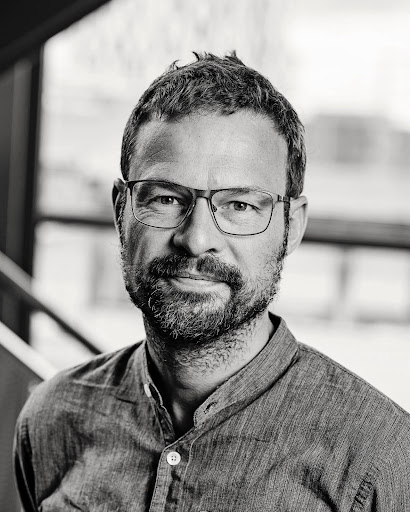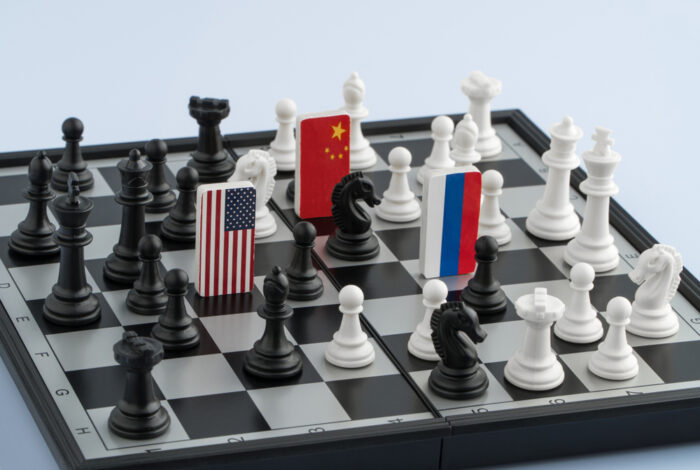The Progressive Post
Greenland in the line of fire

US President Donald Trump’s increasingly aggressive attention threatens Greenland’s long quest for self-determination. Now Greenlandic leaders appeal to Europe for backup.
Trump Force One hit the tarmac of the newly expanded international airport in Nuuk on 7th January, bringing Don Trump Jr. as literally, the first tourist flying in directly from the US. However, painfully attentive to how Trump’s advances rhetorically oscillate between promises and threats, any excitement in Greenland soon turned to anxiety. The Monroe Doctrine says the US will not accept that other great powers establish footholds on the North American continent. And since the advent of transcontinental aviation and missile technology, the US needs to look out for nuclear attacks from Eurasia. That is why the US never left Greenland after WWII and still runs the Thule Air Base in the far Northwest – recently renamed Pituffik Space Base to honour the Greenlandic heritage of the place and to signal its transfer to Trump’s newly formed US Space Command.
Greenlanders have long aimed for independence from Denmark. Preparations have followed two parallel tracks: first, gaining independent stature and agency in international affairs in a continuous arm-wrestling with Danish constitutional law. Second, diversifying away from material dependence on Denmark for trade, subsidies and human resources. The EU has played important roles in both: Greenland’s original 1979 autonomy arrangement allowed the island to leave the European Communities as the first territory since Algeria. The arrangement felt urgent as sovereignty over fisheries – all important for the economy, employment and regional development – was about to go South. Instead, Greenland has since been associated with the EU as an Overseas Country and Territory (OCT), trading fisheries quotas for tax-free access to the single market and development aid. A representation in Brussels became Greenland’s first, serving as the training ground for the nascent Greenlandic diplomatic corps.
Even if EU subsidies – now under a partnership agreement – remain the most important contribution to Greenland’s economy after Denmark’s, Greenland has been eager to diversify revenues, exports, trade and investments further. In 2009, an upgraded autonomy arrangement was introduced. Here, a cap was put on the annual Danish subsidies – but as compensation, revenues from future mining was to stay in Greenland. As global appetite for new mining projects were low after the financial crisis, inclinations were made towards China for investment in mining and infrastructure. However, every time Chinese engagement seemed to be materialising, they each evaporated after a creative range of Danish interventions: a dilapidated naval station was taken off the market when a Chinese company put in a bid; Copenhagen stepped in with attractive financing for new airports to keep a Chinese construction company out; satellite receivers co-financed by a Chinese university were taken down; Chinese mining engineers never received their visas. In hindsight, US security concerns vis-á-vis China, communicated to Copenhagen and – increasingly – directly to the Greenlandic capital Nuuk, ultimately proved decisive.
As Greenlandic elected and diplomatic officials have been more involved directly with US counterparts, earlier pacifist stances have been dialled down to assure that even an independent Greenland will always be a member of NATO and US defence needs will be facilitated. Russia’s full-scale invasion of Ukraine occasioned the Greenlandic government to over-implement US and EU sanctions regimes – Greenlandic public and private fishing companies stopped exports and sold Russian subsidiaries – to signal its solid anchoring in the West. In parallel, Greenlandic minerals authorities engaged with both the Biden administration’s and the EU Commission’s efforts to bring about a green transition as well as further strategic independence from Chinese critical minerals. Hence, in its 2024 Foreign Policy Strategy, Greenland looked to the West, excited to further reduce their dependence on Denmark.
Then, even before his inauguration, Trump’s ham-fisted campaign to acquire Greenland took off – just as Greenland entered the campaign leading up to the 11th March parliamentary elections. Not least due to Danish efforts to involve European partners, the pressure on Nuuk and Copenhagen served as a test case for handling a situation in which all European capitals soon found themselves in relation to Ukraine: how to deal with Trump? Europe is still trying to come to grips with this question. And on the fate of both Ukraine and Greenland, the jury is still out. But one encouraging experience is worth noting: the Greenlandic electorate and their political parties managed to conduct an election with impressive integrity. American billionaires were travelling the country promising investments. International journalists talking about Trump and independence outnumbered their Greenlandic counterparts on the ground. Every Facebook feed in Greenland was overflowing with alarmist Danish media coverage warning that US promises and anger over dark episodes in Denmark’s colonial administration were bound to rush Greenland into independence. Even under this massive international attention, Greenlanders ignored all that and let bread-and-butter issues decide their election: fisheries reforms, welfare services and regional developments.
At the time of writing, coalition talks for the new Greenlandic government have just been concluded. Greenlanders have felt immense pressure from un-solicited US attention. Hercules planes delivering bullet-proof limos that descend into hitherto unknown underground garages under a new, fortified US consulate – in preparation for what was to be a ‘private’ visit from the wife of vice-president Vance. Eventually, the vice-president joined his wife and redirected the visit to the US base. Nevertheless, the US playbook is reminiscent of Russian President Vladimir Putin’s prior grab of Crimea – even though, fortunately, it is difficult to conjure up a scenario in which someone ends up shooting others in Greenland. Still, some Greenlanders feel and fear being invaded.
The EU keeps repeating its insistence on international law, the principle of self-determination and the integrity of the Kingdom of Denmark. EU member states have, in various relevant ways, expressed willingness to support Denmark and Greenland. When the Vance delegation still planned to go not only to the Pituffik base, but also to ‘civilian’ Greenland, the caretaker government issued a statement asking friends in like-minded capitals for a more forceful show of solidarity. As soon as a new government is formed in Nuuk, the EU should answer that call. One way would be to initiate a ‘summit of international law’ in Nuuk – inviting Canada and other like-minded countries. Soon, the time will be ripe for beefing up the EU Commission’s representation in Nuuk to accelerate cooperation with the government of Greenland on trade, investment and human resource development and ensure that Greenland does not fall between the tectonic plates moving apart.
Photo credits: Stig Alenas/Shutterstock.com




